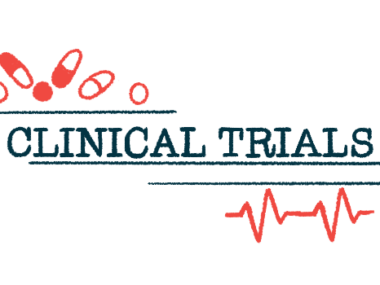Autoimmune hepatitis therapy hits FDA roadblock, future uncertain
Agency requests study of zetomipzomib before registrational trial could begin
Written by |

Kezar Life Sciences has hit a roadblock in plans to develop zetomipzomib, its experimental treatment for autoimmune hepatitis (AIH).
The company has been unable to reach an agreement with the U.S. Food and Drug Administration (FDA) about plans for a registrational clinical trial — a trial whose data, if positive, could support future applications seeking the therapy’s approval.
Kezar had hoped to move zetomipzomib to such a trial, but the FDA has required another study be done first. The FDA also canceled a meeting with the company that had been scheduled for later this year to discuss Kezar’s proposed trial.
“We are incredibly disappointed with the unusual decision by the FDA to cancel our Type C meeting, which we had hoped would allow us to align on key clinical trial parameters for a potentially registration-enabling study of zetomipzomib in patients with AIH, a population with significant unmet medical need and currently without FDA-approved therapies,” Chris Kirk, PhD, CEO of Kezar, said in a company press release.
The company said it plans to “explore strategic alternatives” for developing zetomipzomib, but did not set a timetable and stressed there can be no guarantees the therapy will continue to be developed. In the meantime, Kezar is reducing its workforce and taking other cost-saving measures.
How zetomipzomib treats AIH
Hepatitis refers to inflammation of the liver. While most types are caused by viral infections, AIH happens when the immune system mistakenly attacks healthy liver cells.
There are currently no FDA-approved treatments for AIH. Management usually relies on corticosteroids — a type of anti-inflammatory and immunosuppressive treatment. However, these medications aren’t always effective and can have troublesome side effects.
Zetomipzomib is designed to block the activity of the immunoproteasome, a protein complex that helps activate the immune system and is often overactive in autoimmune disorders.
Earlier this year, Kezar shared results from the Phase 2a PORTOLA clinical trial (NCT05569759). The study tested zetomipzomib against a placebo in 24 adults with AIH whose condition was not well-controlled by corticosteroids.
While the study wasn’t powered to detect statistically significant differences in terms of efficacy, findings showed more people treated with zetomipzomib experienced normalization in markers of liver damage and immune activity compared with those on the placebo.
More participants taking zetomipzomib were also able to reduce or stop corticosteroids. No serious treatment-related side effects of zetomipzomib were reported.
PORTOLA’s final data will be presented at The Liver Meeting 2025, Nov. 7-11, in Washington, D.C.
FDA requires new liver function study
Kezar submitted a report to the FDA, with data on zetomipzomib’s efficacy, safety, and pharmacological profile in more than 300 people. This included healthy volunteers and people with AIH and other autoimmune diseases. The company also proposed steps to minimize risks that could be used in future trials.
In a written response, the FDA said that before a registrational trial can begin, Kezar would need to conduct a separate study to evaluate the pharmacological properties of zetomipzomib in people who have significantly reduced liver function.
The company planned to exclude patients with significant liver impairment from the registrational study and said conducting the required interim pharmacological trial would delay those plans by about two years.
The FDA also requested future trials “include 48-hour patient monitoring in a clinical research unit, which would likely hinder patient enrollment and participation,” Kezar stated.
“We remain deeply committed to patient safety and had provided the FDA with [pharmacological] data of zetomipzomib in AIH patients with mild [liver] impairment, a plan for conducting a parallel pharmacokinetic study in subjects with [liver] impairment, and a robust risk mitigation plan for future clinical trials,” Kirk said.
However, because the FDA canceled the planned meeting, the future of zetomipzomib’s development remains uncertain.
“While we remain excited about the potential of zetomipzomib to be the first approved agent in AIH, we lack the resources to extend the development timeline and question the technical feasibility, medical need and patient burden of utilizing an in-unit monitoring program in AIH clinical trials,” Kirk said. “I want to thank everyone on the team here at Kezar, as well as the physicians, staff and patients who participated in our clinical trials.”







